Bringing a dog into the family can be one of life’s most rewarding experiences. But along with the tail wags and cuddles come responsibilities—including veterinary care. According to Forbes, in the U.S. alone, dogs make up the majority of the 5.36 million insured pets, with nearly 80% being dogs compared to just 20% cats.
While some pet owners turn to insurance to help manage vet bills, the reality is that most still pay out-of-pocket. And those costs can add up fast. On average, the annual cost of owning a dog is around $1,400, making it important to consider the breed’s personality and potential healthcare costs.
Choosing a dog breed known for good health and minimal health issues can lead to fewer trips to the vet and a smoother, more affordable journey as a pet parent. For prospective dog owners, finding a healthy breed with low vet bills can make all the difference in long-term care.
Some breeds are simply generally healthy, needing only proper care, a balanced diet, and regular exercise to stay fit and happy.
Dog Breeds With Lowest Vet Bills
Here are the 7 healthiest dog breeds:
1. Chihuahua
The Chihuahua stands out for more than just its pint-sized charm. These small dogs are known to be a generally healthy and low-maintenance breed, making them a smart pick for pet owners seeking fewer visits to the vet.
Despite their size, Chihuahuas are tough, lively, and surprisingly resilient. They are less prone to joint and back issues that affect many other breeds.
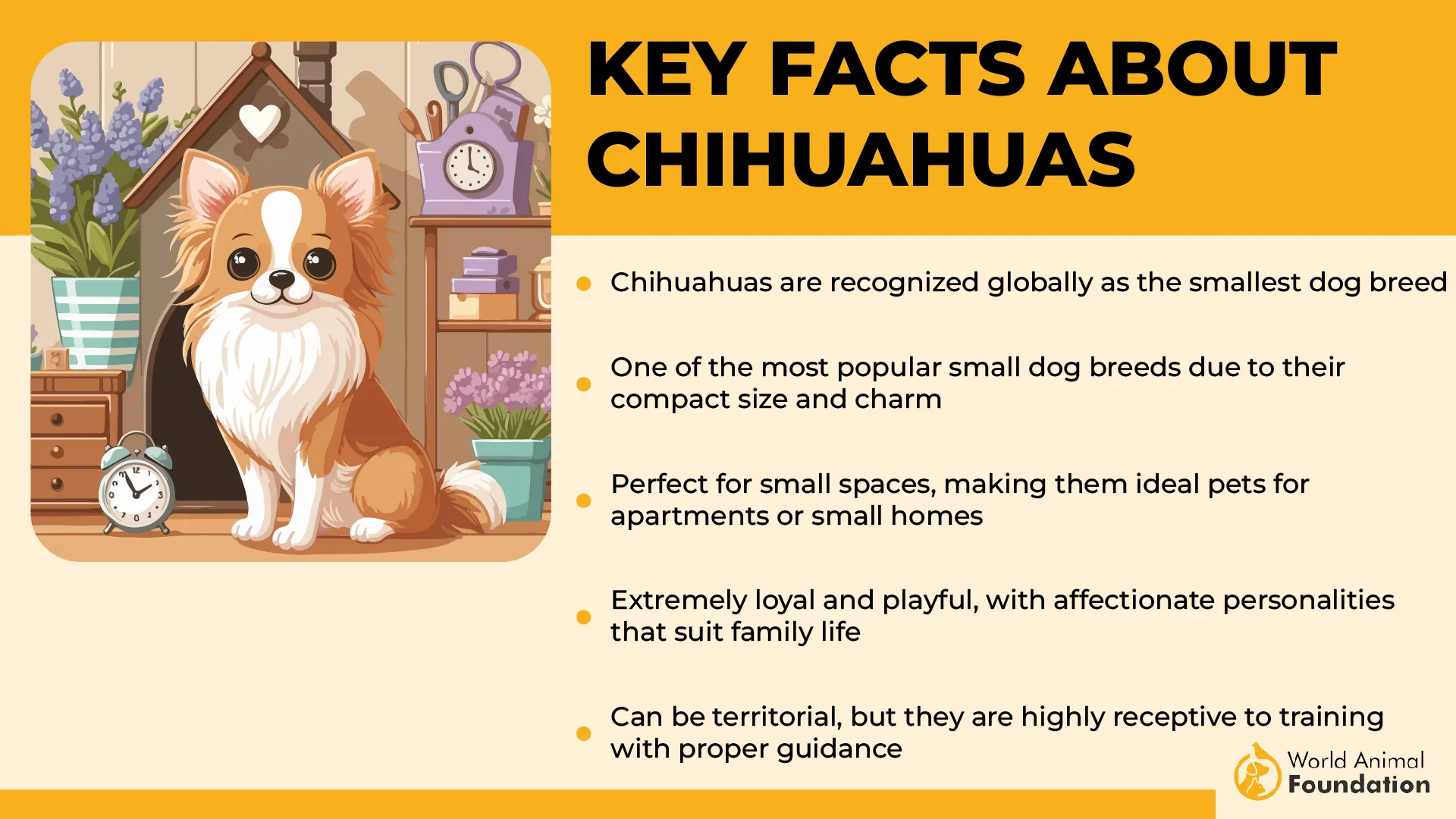
With a proper diet, regular exercise, and routine dental care, they tend to experience few health problems and can live long, fulfilling lives.
Quick Chihuahua Health Snapshot
Average Lifespan: 14–16 years
Common Health Issues: Dental care (manageable)
Energy Level: Moderate – enjoys mental stimulation and light play
Vet Bills: Low – due to a few health issues
Size Category: Small dogs
Maintenance: Low maintenance, requires grooming based on coat
2. Whippet
The Whippet may be famous for its incredible speed, but it’s also one of the healthiest dog breeds around. With a lean body and few health problems. This breed rarely suffers from genetic diseases, meaning fewer trips to the vet and less worry about potential healthcare costs.
Whippets are less prone to skin conditions, and their natural active lifestyle helps them avoid common issues like obesity.
Originally bred in the UK for hunting and racing, these dogs were often used in rabbit coursing, which speaks to their high energy and sharp instincts. According to the American Kennel Club (AKC), they are fast on their feet, able to reach speeds up to 35 mph.
Quick Whippet Health Snapshot
Average Lifespan: 12–15 years
Common Health Issues: Rare – few health concerns
Energy Level: High energy, loves to run
Vet Bills: Low vet bills – rarely need medical attention
Size Category: Medium
Maintenance: Low maintenance, minimal grooming
3. Basenji
The Basenji stands out not only for being a barkless dog, but also as one of the healthiest dog breeds with a record of few health issues. Originally bred in Africa to hunt in rugged conditions, this breed developed desirable traits like toughness, independence, and strong natural defenses against many health problems.
These dogs are known for their clean habits and have a small size, which means they’re easier to manage and rarely suffer from back issues or joint stress. Their short, fine coat doesn’t shed much and usually stays fresh without frequent washing, minimizing the need for veterinary care related to skin concerns.
They rely on sharp intelligence, and their ability to track prey using both scent and sight reflects their passion and instinctual drive
Quick Basenji Health Snapshot
Average Lifespan: 13–16 years
Health Risks: Very low – minimal health issues
Energy Level: Medium – needs mental stimulation
Potential Healthcare Costs: Low – few medical needs
Maintenance: Light – occasional brushing
Exercise Needs: Daily walks and play sessions
4. Havanese

The Havanese is a small but spirited dog breed that brings joy, loyalty, and surprisingly good health to any home. Often living 14 to 16 years or more, this healthy breed tends to enjoy a life with few health issues, though joint problems may appear later in life.
Overall, they require proper care but are not prone to a long list of health problems that affect other breeds.
Often called “Velcro dogs” because they love staying close to their humans, Havanese thrive on companionship and make excellent pets for families, singles, and seniors alike.
They adjust easily to different living spaces—even small apartments—making them perfect for urban pet owners who want a furry companion without too much space.
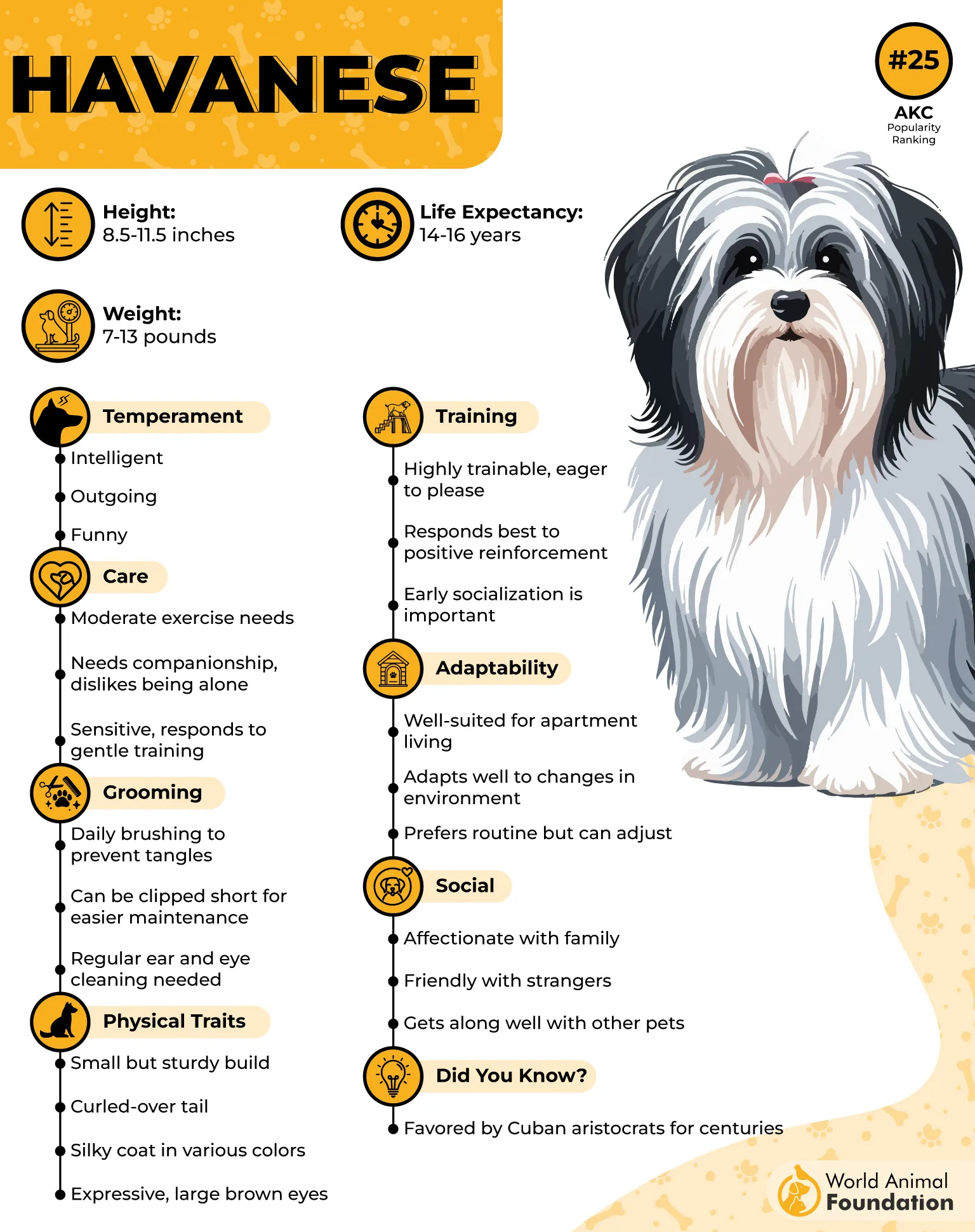
Quick Havanese Health Snapshot
Average Lifespan: 14–16+ years
Common Health Concerns: Mild joint or eye issues in older age
Energy Level: Moderate – enjoys playtime indoors or out
Potential Healthcare Costs: Low vet bills with routine care
Grooming Needs: High – needs regular grooming
Climate Suitability: Best in warm environments
5. Ibizan Hound

The Ibizan Hound is a standout among dog breeds for more than just its striking appearance. With tall, lean bodies and signature upright ears, these dogs bring both elegance and endurance. They’re well known for staying in excellent health throughout their lives, with few health issues compared to many other breeds.
Originally from the Balearic Islands, these dogs—sometimes called “Hannibal’s dogs”—were originally bred for hunting, giving them sharp senses and an agile build.
According to Hillspet, their sleek, muscular frame supports an active lifestyle and naturally helps them stay fit, while their low body fat reduces the risk of joint strain or back issues.
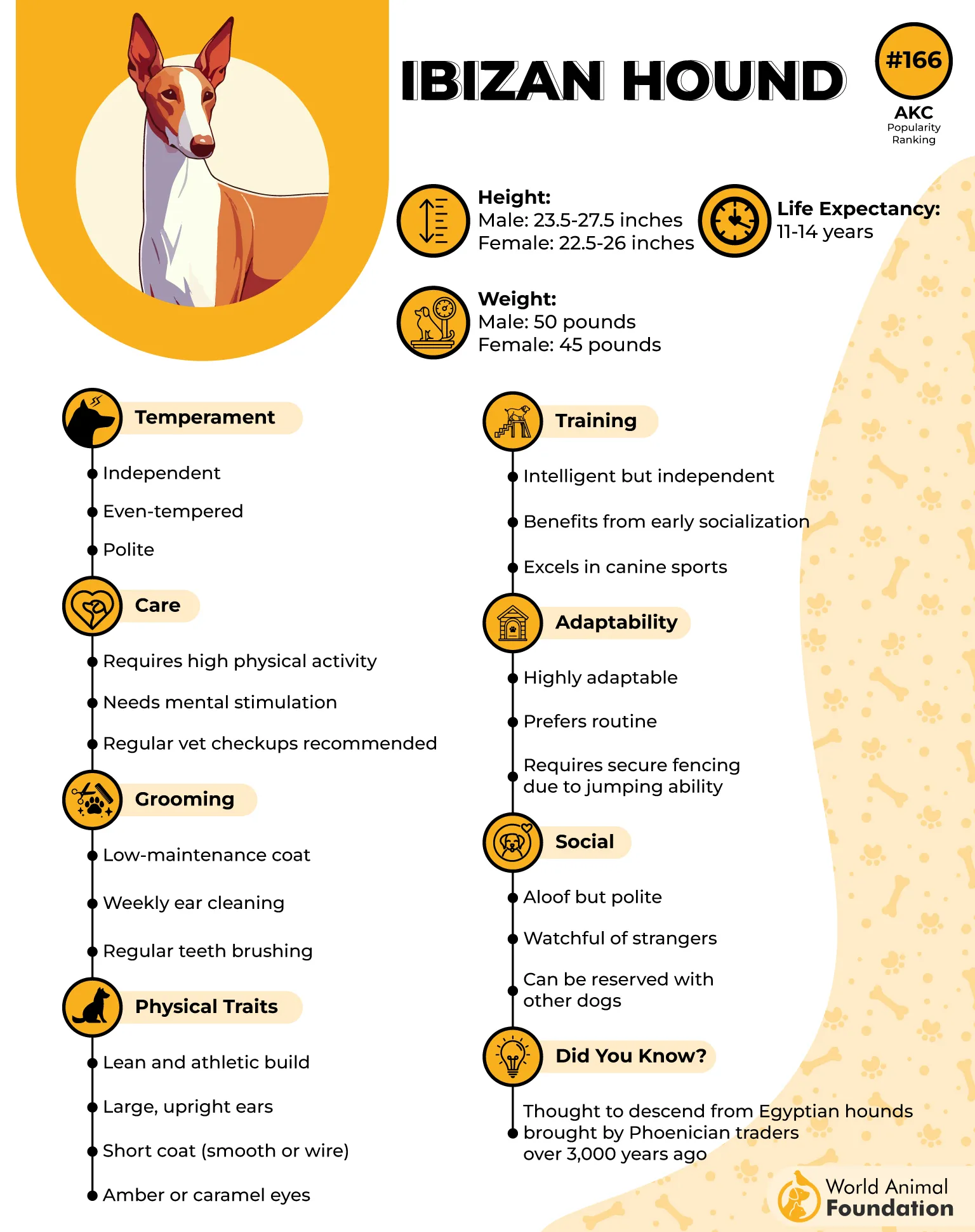
Quick Ibizan Hound Health Snapshot
Average Lifespan: 11–14 years
Size: Medium-tall, 45–55 lbs
Energy Level: High – requires daily activity
Health Conditions: Very few – avoids most inherited issues
Grooming Needs: Minimal – quick brushing occasionally
Vet Visits: Rare – only basic checkups needed
6. Border Collie

If you’re looking for a dog with boundless energy and incredible drive, the Border Collie might be the perfect match. Famous for their intelligence and unmatched work ethic, these dogs are not only mentally sharp but also physically resilient.
They’re considered one of the healthiest dog breeds, often enjoying long, active lives with minimal health issues when given the right environment.
These dogs have a unique style of movement, often using a cat-like crouch when herding, showcasing their intense focus and agility. Their high stamina and sharp minds make them ideal for prospective dog owners who lead an active lifestyle and can provide both mental stimulation and structured activity.
Border Collie offers all that and more. They’re not just pets—they’re partners. Keep them engaged, let them lead, and they’ll reward you with a lifetime of loyalty, purpose, and peak health.
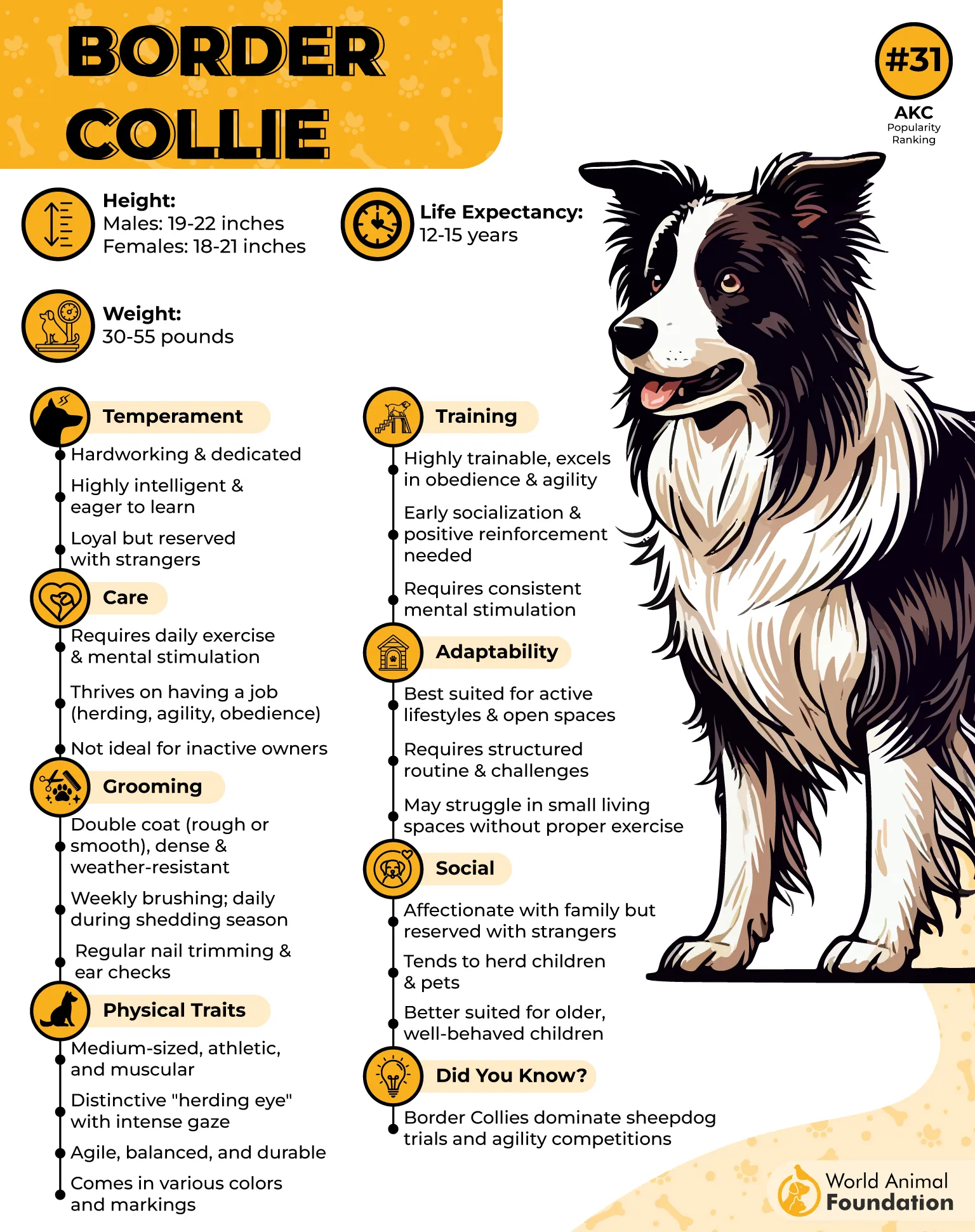
Quick Border Collie Health Snapshot
Average Lifespan: 12–15 years
Weight Range: 30–45 pounds
Temperament: Alert, responsive, hard-working
Common Health Concerns: Few – generally healthy breed
Ideal Environment: Active homes, wide spaces, agile work
Maintenance: Moderate – coat care and activity
Vet Bills: Low to moderate, based on lifestyle
7. Beagle

The Beagle is a classic favorite for families and individuals alike, combining an easy-going nature with a sturdy, healthy build. Recognized for their floppy ears and soulful eyes, these medium-sized dogs are more than just cute—they’re remarkably resistant to many hereditary health conditions.
Their strong immune system and balanced frame make them a generally healthy choice for those concerned about long-term potential healthcare costs.
Originally bred for hunting, Beagles are equipped with an extraordinary sense of smell. Their exceptional tracking ability has landed them roles in scent detection units, including at airports.
And while they may not always bark in a traditional sense, they do possess a unique vocalization called a “bay,” a sound that’s both charming and unmistakable.
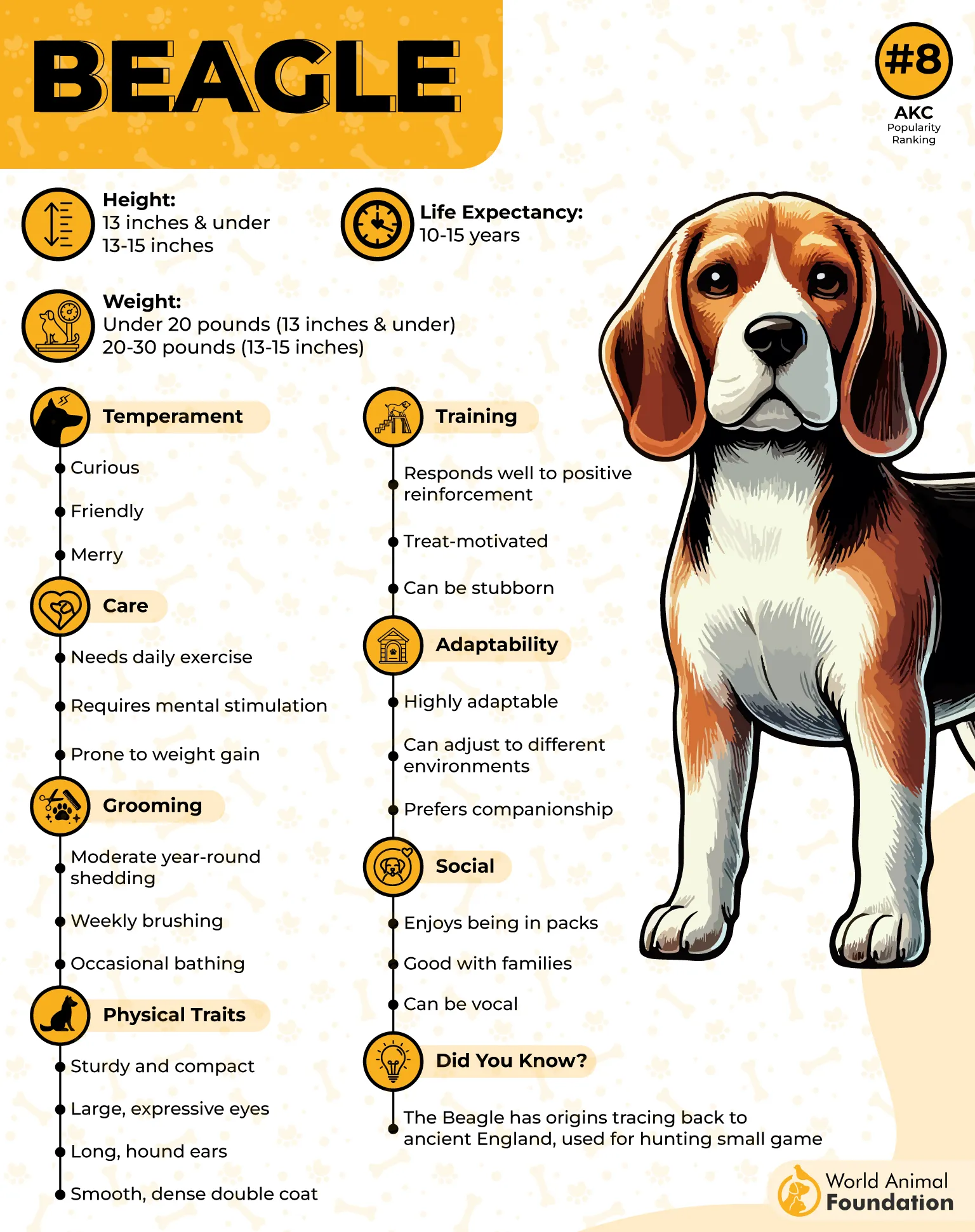
Quick Beagle Health Snapshot
Average Lifespan: 12–15 years
Weight: Range 20–30 pounds
Temperament: Friendly, curious, loyal
Common Health Concerns: Occasional ear infections
Ideal Environment: Homes with space and playful energy
Maintenance: Low – occasional regular grooming
Vet Bills: Typically low with consistent upkeep
Conclusion
When it comes to bringing a dog into your life, health and affordability go hand in paw. While vet bills can quickly add up, certain breeds—like the ones highlighted above—tend to have fewer health issues and require less veterinary care over their lifetimes. This not only eases the burden on your wallet but also helps your dog stay healthy and happy with fewer disruptions.
Whether you’re drawn to a barkless dog, a sleek hunter originally bred for speed, or a playful pup that bonds deeply with humans, there’s a breed out there that matches your lifestyle. For those leading an active lifestyle, energetic companions are ideal. If you prefer a calmer routine, a low-maintenance breed may be a better fit. Either way, fewer trips to the vet and minimal health issues don’t have to mean fewer cuddles or less character.


